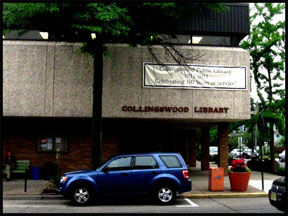How Caring for My Mother Brought Me Into the LGBT Caretaker Club: A SAGE Experience
read the entire piece in The Huffington Post
When my mother became terminally ill, I went home to take care of her without a second thought. I worked as a freelancer at the time, so my work life was portable. As an only child I had no siblings to turn to (or to fight with or resent later). The fact that I am a lesbian was never an issue with my parents.
If anything, having to “come out” only made us closer. In my early 20s I was suddenly in a situation where my parents and I had to work through my declarations of being a lesbian and everything that meant in the early 1980s. I come from a background — working-class (no complaints) and British (stiff upper lip) — where we rarely expressed our feelings. In many ways my coming out as a lesbian was an extension of my mother’s feminist politics. (When I told them I had something to tell them, her guess was that I was either gay or pregnant.) My father did struggle temporarily with the fact that I am a lesbian, but after I came out to my parents, he told me for the first time that he loved me.
However, as a lesbian caretaker of my terminally ill and elderly mother, I became part of a trend that I came to consider after writing Tea Leaves: A Memoir of Mothers and Daughters, recently published by Bella Books.
“Out and Aging,” a 2006 report, found that 36 percent of LGBT boomers are caring for aging parents. One significant reason that a higher percentage of us care for aging parents than heterosexuals is that we are less likely to have children to care for. Even when we are partnered, we are often perceived as “not having families.” This was not the case with me — both of my parents loved and accepted my partner. My mother left a letter to be read after her death, entitled, “A letter to my unexpected daughter-in-law, Barbara.”
It could very well be that people in the LGBT community (which crosses the spectrum of ethnicity, culture, and class) inhabit the role of caregiver in a spiritual sense (much as gays, lesbians, and transgender people inhabited the role of the two-spirit or “berdache” in many Native-American cultures).
It is true that there is a youth culture in the LGBT community (reflected in the gay media and consumer culture), but at the same time we inhabit the role of the “outsider” in society and may perceive the wisdom of elders — both family members and our friends who have become family — as important.
read the entire piece in The Huffington Post






![Tea%20Leaves_lg[1] Tea Leaves, a memoir of mothers and daughters from Bella Books cover image has photo of Jane Mason, age 10, taken in 1929.](https://tealeavesamemoir.wordpress.com/wp-content/uploads/2012/05/tea20leaves_lg1.jpg?w=195&h=300)
